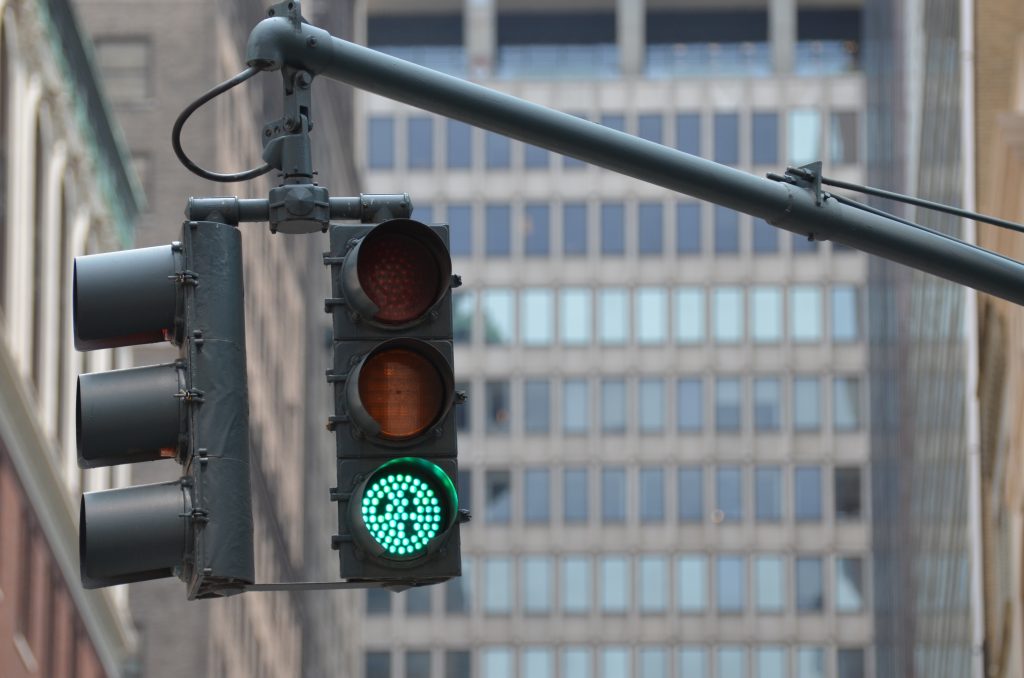 Cities need to ensure public utilities are safe and properly installed. Road fixtures, such as traffic lights and speed limit signs, are an essential part of infrastructure. When road fixtures are installed negligently, the public needs to be able to hold the liable parties accountable.
Cities need to ensure public utilities are safe and properly installed. Road fixtures, such as traffic lights and speed limit signs, are an essential part of infrastructure. When road fixtures are installed negligently, the public needs to be able to hold the liable parties accountable.
So who should be responsible if a road sign crashes into your car or a utility pole falls on you? It depends, and proving why an entity is liable requires a skilled lawyer familiar with the use of experts. In the following case, a plaintiff is seeking to hold the City of Baton Rouge responsible for damage to his car caused by a falling traffic signal. The case shows why the proper use of expert testimony is critical to ensuring both sides get their day in court.
Randolph Barnett was driving in East Baton Rouge Parish when a school zone sign hanging overhead suddenly fell and crashed onto his windshield. Barnett sued the City of Baton Rouge and the Parish of East Baton Rouge via the Department of Public Works. The trial court granted summary judgment for the City, thereby dismissing the case. Barnett appealed this decision for review by the appellate court.
The City relied on testimony from a shop supervisor for the Public Works Department, Charles Washington. Washington testified the sign broke because of damage from a recent thunderstorm, and the type of break could not have been screened for during inspection, as it resulted from wind force. He also said the City did not know about any defect in the sign before Barnett’s accident.
Barnett presented expert mechanical engineer Leroy Blanchard to counter the City’s story. Blanchard’s theory was the sign fell because of a mechanical failure relating to the screw threads. He also stated the sign was meant to withstand higher wind speeds than were present during the storm.
The trial court found this argument convincing and ruled in favor of the City because Barnett could not show the City was negligent or had constructive notice of the danger. Barnett appealed this decision and claimed that summary judgment was inappropriate because of a genuine dispute of material fact.
Summary judgment is only appropriate where there are no disputes of fact between the parties and one side loses as a matter of law. La. C.C.P. art. 966B(2). The court may review the evidence on appeal and determine whether summary judgment is appropriate. Temple v. Morgan, 196 So. 3d 71 (La. Ct. App. 2016).
The City’s liability for injury because of defective projects is governed under La. R.S. 9:2800C. The statute provides a public entity can only be liable for damages if the entity had actual or constructive notice of an unreasonable risk of danger before the accident caused by the defect and the entity was allowed a reasonable opportunity to remedy the defect. Additionally, a public entity that creates the dangerous condition is presumed to have notice.
The City challenged the finding that it had actual or constructive notice of the danger. However, as the appellate court noted, Blanchard’s testimony presented a genuine issue of material fact, directly rebutting the City’s expert testimony. There was a dispute of fact of whether the City created the condition or whether the condition was a result of the windstorm. The appellate court, therefore, reversed the trial court’s decision and found summary judgment inappropriate for the case.
Without an expert on Barnett’s side, his case would indeed have been dismissed. His lawsuit will now proceed to trial, where the judge or jury can assess the experts and decide who they believe. Barnett’s excellent lawyer saved the day for him by working with a great expert.
Additional Sources: BARNETT V. CITY OF BATON ROUGE
Written by Berniard Law Firm Blog Writer: Corrinne Yoder-Mulkey
Additional Berniard Law Firm Articles on Experts in Litigation: Louisiana Court Holds that Medical Records Can Counter Expert Testimony and Bar Summary Judgement
 Louisiana Personal Injury Lawyer Blog
Louisiana Personal Injury Lawyer Blog

